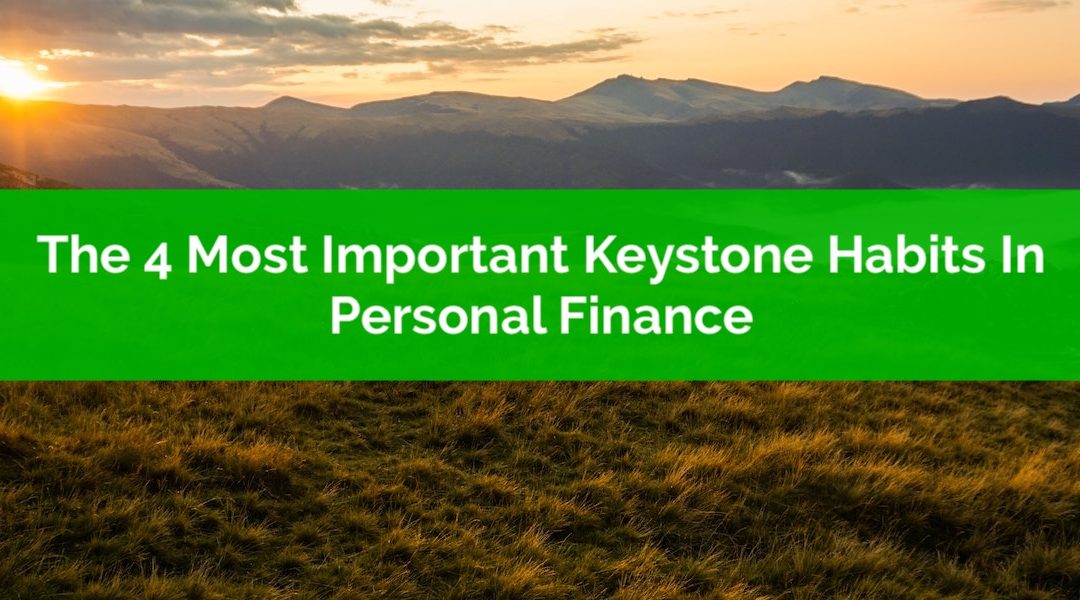
by Owen | Sep 6, 2022 | Behavioral Finance, Budgeting, Buying A Home, Down Payment, Emergency Fund, Financial Planning, Get Out Of Debt, Retirement Planning
There are certain habits that make things way easier, these habits are more important than others, these habits are called keystone habits. Keystone habits create a foundation from which you can make even bigger and more positive changes. Mastering the right keystone habit can transform your life.
We have habits everywhere in our lives and we build new habits all the time (both good and bad!). We use these habits to support our daily lives. These habits make our lives easier, you don’t have to think about what you’re doing, it just comes naturally.
Having a solid keystone habit will create a foundation from which you can make even bigger changes. Eating right, getting regular exercise, sleeping eight hours per night, these are all keystone habits that create a solid foundation from which you can make even more positive changes in your life.
The best part about keystone habits is that once they’re established they don’t take much effort to maintain.
When it comes to personal finance there are 4 important keystone habits. Once these habits are established they create a ripple effect through the rest of your personal finances.
If you practice these four keystone habits then there is nothing you can’t achieve with your personal finances!
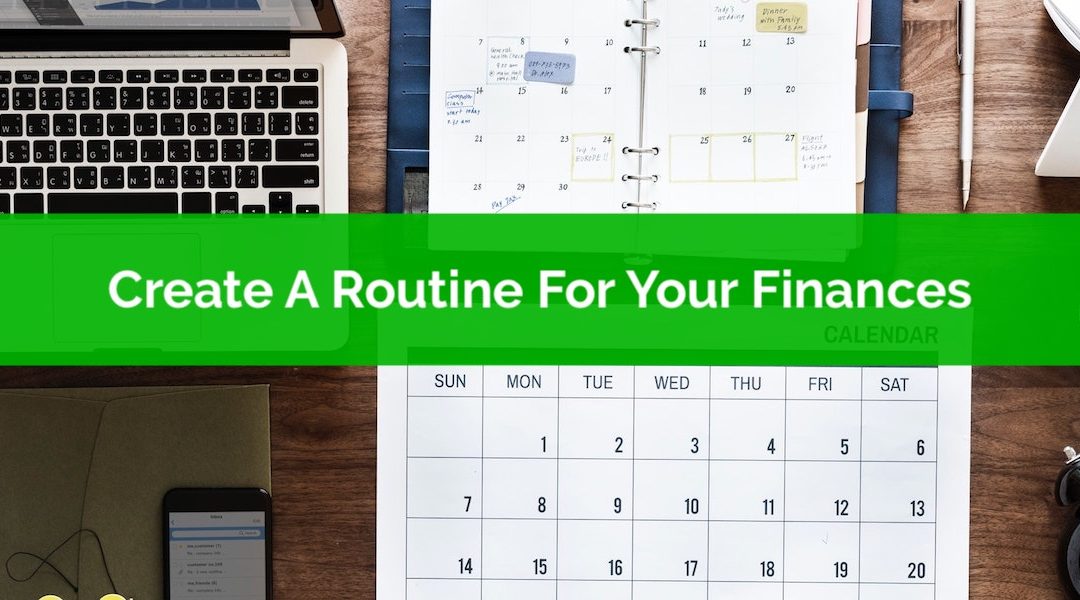
by Owen | Aug 29, 2022 | Behavioral Finance, Budgeting
Routines add structure and discipline to our lives. They make things easier. When we’re in a good routine things seem faster, easier and more efficient. We know exactly what to expect and how to do it.
Creating a routine for your finances is a great way to add structure and discipline to your financial life. It makes you more efficient and happy with your finances (and who doesn’t want that?).
Anyone who has spent too much time managing their finances knows how quickly you can feel burnt out. This is called budget fatigue and it’s a very real problem. It’s when you spend so much time and effort managing your money that you end up making worse spending decisions because you’re just so tired.
Having a routine helps you manage your finances more efficiently. It’s one of the easiest ways to improve your finances for the long term. Your routine can include things like budgeting, investing, saving etc.
For years and years, we’ve been on a 4-month personal finance routine. We review our finances only three times per year. How’s that for efficient!
We review our finances once in mid-January, once in mid-May and then once in mid-September.
During these reviews, we sit down and look at our spending, our budget, our investments, our contributions and we see if we need to rebalance or not. We also talk about the next 4-12 months, what special expenses we can expect, and if we should make changes to our regular budget.
During these financial “check-ins” we also review our long-term financial goals. We check to see if we’re on track or if we need to make changes to either our expectations or our savings rate.
Having this routine has improved our personal finances immensely and I recommend everyone create a routine for their finances so you can experience these benefits too.
There are four main ways our personal finance routine has helped improve our finances…
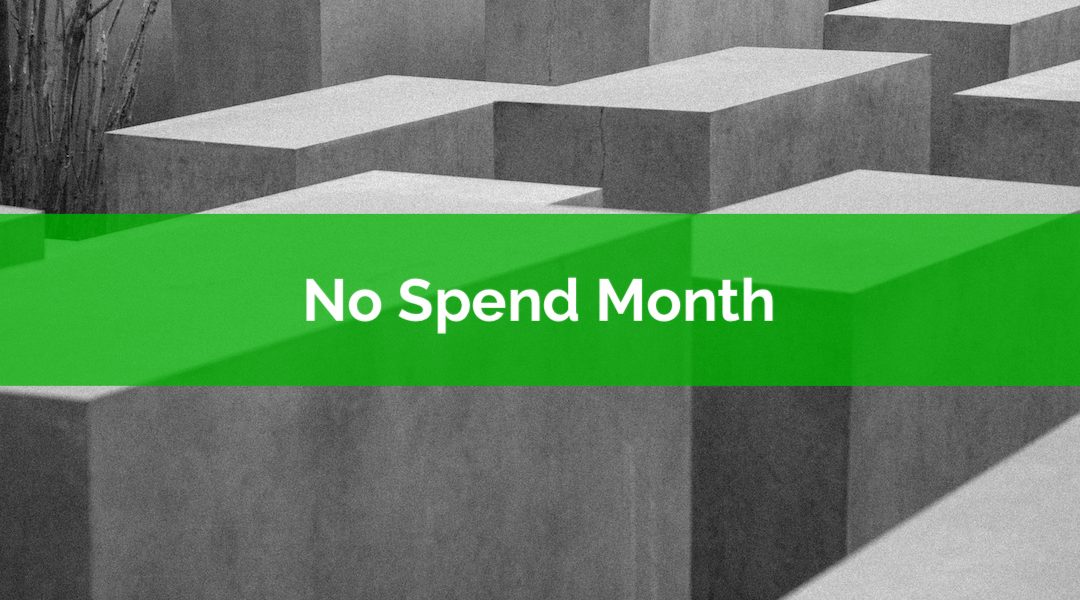
by Owen | Jun 20, 2022 | Behavioral Finance, Budgeting
Habits. They’re both good and bad.
Habits are tough to change because for the most part they occur subconsciously. You’re not really in control. You may not even realize it’s a habit. You think you’re making a decision but really it’s just a habit driving your actions.
When you have a habit, good or bad, you’ve been wired through repetition and rewards to make the same actions over and over. Truthfully you have very little control.
Habits form when a behaviour is repeated often enough to become automatic. There are typically three phases to creating a habit, the cue, the routine, and the reward.
For example, a regular exercise routine is an extremely beneficial habit. Regular exercise can greatly improve your overall health and wellbeing. Getting 75 minutes of exercise each week can extend your lifespan by as much as 4.5 years! (Not to mention you feel so much better!)
Unfortunately, habits can work against you too. Bad habits can form just as easily as good habits.
Bad habits usually form during stressful times, during big life changes, and when you’re bored.
Bad spending habits are particularly easy to form because there is an immediate reward for spending money. Bad spending habits are also easily formed because there are spending cues all over the place in the form of advertisements.
Bad spending habits can be very detrimental to your financial health. Even a few bad spending habits can cost you $50-$100 per week. Over the course of your lifetime those habits can cost you hundreds of thousands of dollars (See the difference just $10/day makes!)
If you think you may have some bad spending habits I’ve got a challenge for you!
Try doing a “no spend” challenge this month. For the next 30 days you should spend no money at all. NOTHING!
Doing a “no spend” month is a great way to reset your spending habits (and save a bunch of money!)
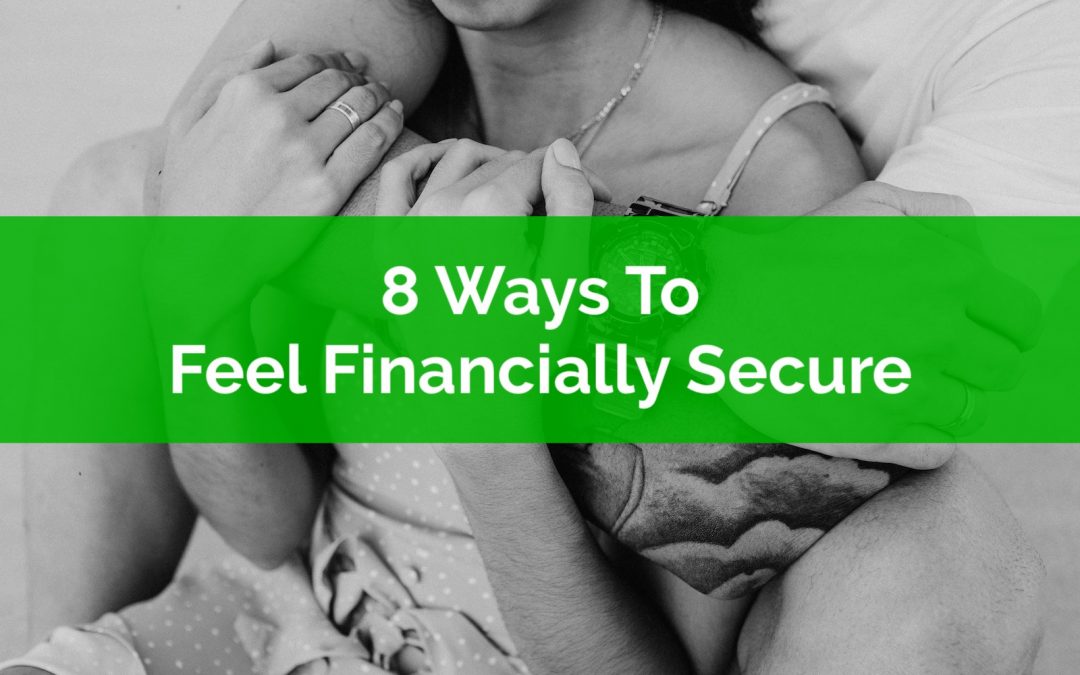
by Owen | Jun 6, 2022 | Budgeting, Emergency Fund, Financial Goals, Get Out Of Debt, Investment Planning, Retirement Planning
Feeling financially secure has nothing to do with how much money you have, or how much money you earn, feeling financially secure is all about how you feel about your finances, how you manage your finances, and your attitude towards money in general.
Financial insecurity is a very common feeling. It affects both low-income and high-income households, it affects both young and old. In fact, according to a recent FP Canada survey, at least half of us are affected by financial stress in some way.
“Half (50%) of Canadians say that financial stress has impacted their life in at least one way, with health issues (18%), marriage/relationship problems (15%), distractions and reduced productivity at work (14%), and family disputes (13%) the most common ways stress affects them.” Source.
When talking about financial security, it’s important to differentiate between BEING financially secure and actually FEELING financially secure. It’s possible to BE financially secure but not FEEL that way. It’s possible to be in a good financial position but without the right knowledge, routines and plans, it may not actually feel that way.
In this post we’ve outlined eight things you can do to FEEL financially secure (even if you still have the exact same income, spending, and savings).
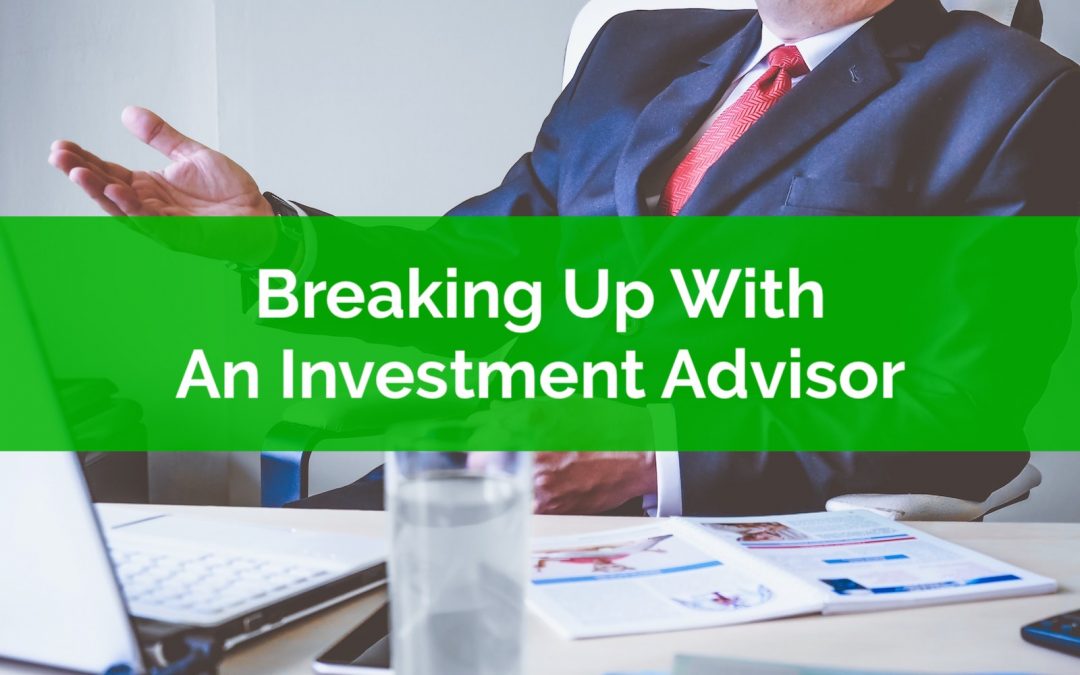
by Owen | May 24, 2022 | Behavioral Finance, Budgeting, Income, Investment Planning, Retirement Planning
Over the last few years the number of low-cost investment options has exploded in Canada. There are new and easy ways to create a low-cost diversified portfolio that isn’t dragged down by high investment fees.
There were always low-cost, do it yourself options, but they required a fair amount of manual work to make contributions, invest those contributions, and rebalance periodically (and let’s not forget, the stress of keeping yourself on course during a correction or recession).
But now there are new options available. In addition to a low-cost ETF portfolio or a low-cost mutual fund portfolio, there are options like low-cost “all-in-one” ETFs and low-cost robo-advisors.
These new options provide investors with new ways to invest in a low-cost portfolio without necessarily doing all the work themselves.
This has understandably put a lot of pressure on investment advisors who have historically charged extremely high fees on the investment products they sell.
The average investment fee on a mutual fund portfolio in Canada is around 2.3%. This can cause an enormous amount of drag on an investment portfolio. A $1,000,000 investment portfolio would experience a $23,000 annual drag from investment fees! That has a direct impact on how much retirement income you can create from your investment portfolio.
But switching from a high-priced mutual fund portfolio can be hard to do.
Even with the high fees, traditional investment options continue to dominate the investing landscape in Canada, but things are starting to change. For the first time ever, ETFs have outsold mutual funds. More money is flowing into ETFs than into mutual funds (bear in mind that you can also have high-priced ETFs, and low cost mutual funds, so this isn’t necessarily the best indicator).
But… if these low-cost investment options have been around for a while, why the slow change? Why aren’t more people switching?
There are three main risks people face when making a change of this kind, financial risk, emotional risk, and social risk. These risks can be difficult to overcome. Let’s understand each one and why they make breaking up with an investment advisor hard to do…
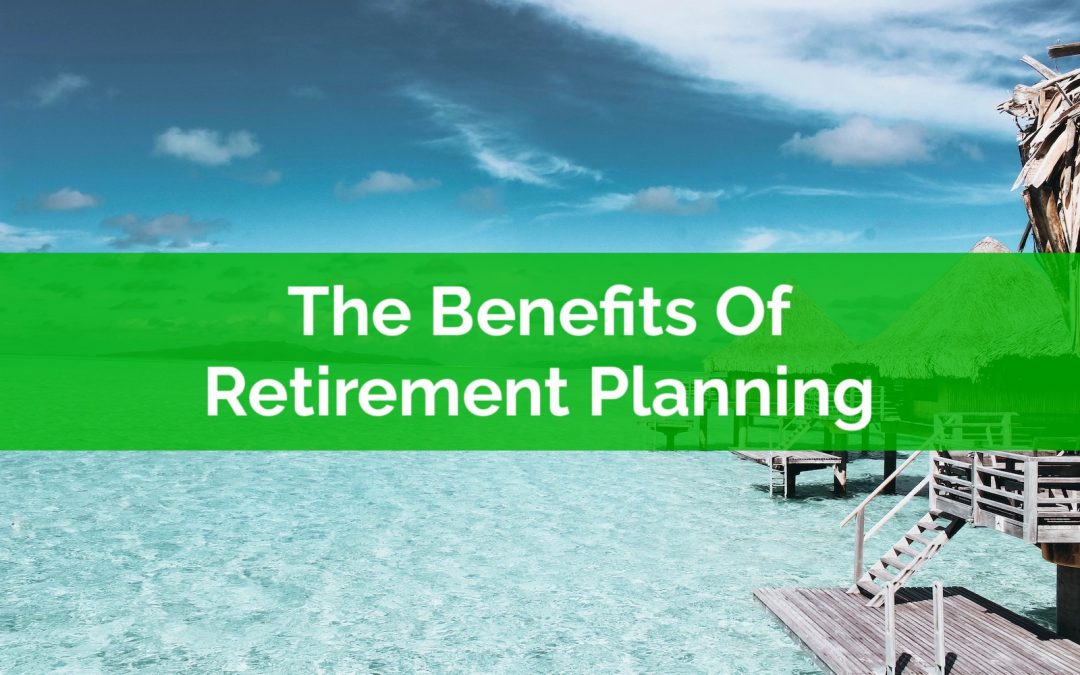
by Owen | Apr 25, 2022 | Budgeting, Financial Planning, Government Programs, Income, Retirement Planning
Retirement planning is complex and includes many important considerations like retirement spending, income tax planning, income splitting, maximizing government benefits, deciding when to take CPP and OAS etc. etc.
All of these individual parts work together to create a great retirement plan. They are so important that even a small mistake can mean lower retirement spending or a higher chance of running out of money in the future. It could mean $10,000’s in extra tax or $10,000’s in reduced government benefits.
With a typical retirement plan spanning 30-40+ years it’s easy to understand how small change in assumptions can have a big effect on a retirement plan.
There are also many small decisions to consider when planning retirement, like when to convert RRSPs to RRIFs, when to start CPP, when to start OAS, how much to draw from investment assets, which investment assets to draw from first etc. etc.
In this post, we look at some of the important parts of retirement planning. What they are, what you should consider, and some additional resources to help.






